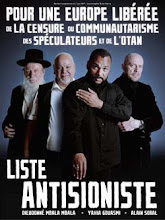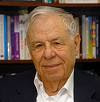There never seems to be an end to the unfamiliar terms associated with studying political communitarianism. This is a real obstacle for Americans choosing to learn more about their new system of governance and the new laws that uphold the system. The main problem remains that so few writers will write anything about it. It's just one of those terms that Presidential hopeful Hillary Clinton can throw out there as if we are all just supposed to somehow know what it is.
Is communitarianism the FUSION between communism and capitalism?
Since my ACL work has come under attack by American Counter Revolutionary Terry Hayfield (and his weird little group of borglike drones calling themselves Fusionists at leftrightunite.com), I've spent a few hours reading up on the fusion theory that united the Libertarians with the Conservatives after WWII. It appears that fusionism is the arranged marriage between communism and radical Right Christianity, all brought to us courtesy of "ex" comunist Fred Meyer and his clone William Kristol.
Here's a few sources I found to begin my studies into yet another convoluted idea that merges the left with the right and leads us all into the communitarian synthesis. (Is there any angle the world government planners missed?)
1. The New Fusionism, by Joseph Bottum
Copyright (c) 2005 First Things (June/July 2005).
http://www.mitpressjournals.org/doi/abs/10.1162/daed.2007.136.4.5
2."A Radical Economics? Capitalism and the Quest for Community"
Saturday, Nov 17, 2006,by Allan Carlson, Ph.D.
Lecture for The Spring Leadership Conference Intercollegiate Studies Institute Indianapolis, IN 15-16 April 2005
http://www.profam.org/docs/acc/thc.acc.050415.rad.eco.htm
"“Fusionism,” many pundits say, defines modern American conservatism. The “fusionist” model sees cultural traditionalists devoted to family, community, and heritage fused ideologically to free-marketeers and free traders, forming a vibrant intellectual and political coalition. To understand this “fusionist” paradigm, its creators would have us envision traditionalist man-of-letters Russell Kirk rowing along with libertarian economist Ludwig von Mises in a two-man scull, exhibiting one purpose and showing mutually grateful and admiring smiles.
"Beneath “fusionism” lies the deeper assumption that both cultural traditionalism and market economies are in some way natural. Traditional culture, this theory has it, rests on the innate human bonds of family, kin, and neighboring, and reflects the hard lessons of human experience. For its part, the market economy expresses a “spontaneous order” also derived from human nature; enter here Adam Smith’s “bartering savage,” that primitive a fellow always seeking a good trade.
"And so, the “fusionist” Conservative Canon includes von Mises’ book, Human Action, alongside Kirk’s The Conservative Mind. It includes economist Friedrich Hayek’s Road to Serfdom alongside Robert Nisbet’s The Quest for Community, our subject today."
4.http://www.claremont.org/publications/crb/id.807/article_detail.asp
5.http://www.mises.org/story/2099
6. http://www.libertypost.net/cgi-bin/readart.cgi?ArtNum=47839&Disp=230&Trace=on
Now I finally understand WHY the final Hegelian "conflict" is going to be between Libertarians and Communitarians, and how Ron Paul's candidacy will help bring us to the final communitarian-libertarian synthesis.
On another separate but similar vein, why would Anthony Sutton write about the Hegelian Dialectic and the bogus left v right idea without ONCE telling us the NAME of the final synthesis? Just as Hayfield and his mindless followers insist I am a disinformation specialist because I don't identify (with?) the Marxist idea of Permanent Revolution, so too could I insist he is disinformation because he doesn't identify communitarianism as the ultimate synthesis.
Clearly Americans are NOT supposed to ever know what a communitarian society is. We can only accept it as inevitable. Now I see why every "expose" from Prison Planet to Daneen Peterson omits the ONE term that would TIE IT ALL together. Shhhh...
[begin quoted article]
Antony Sutton on "Left" versus "Right" and the Hegelian dialectic in American politics
From Alex Jone's Prison Planet, http://www.prisonplanet.com/analysis_sutton.html
Anthony Sutton July 9 2003 (this date is a bit odd since Sutton died in 2002)
How can there exist a common objective when members [of The Order of Skull and Bones] are apparently acting in opposition to one another?
Probably the most difficult task in this work will be to get across to the reader what is really an elementary observation: that the objective of The Order is neither "left" nor "right." "Left" and "right" are artificial devicces to bring about change, and the extremes of political left and political right are vital elements in a process of controlled change.
The answer to this seeming political puzzle lies in Hegelian logic. Remember that both Marx and Hitler, the extremes of "left" and "right" presented as textbook enemies, evolved out of the same philosophical system: Hegelianism. That brings screams of intellectual anguish from Marxists and Nazis, but is well known to any student of political systems.
The dialectical process did not originate with Marx as Marxists claim, but with Fichte and Hegel in late 18th and early 19th century Germany. In the dialectical process a clash of opposites brings about a synthesis. For example, a clash of political left and political right brings about another political system, a synthesis of the two, niether left nor right. This conflict of opposites is essential to bring about change. Today this process can be identified in the literature of the Trilateral Commission where "change" is promoted and "conflict management" is termed the means to bring about this change.
In the Hegelian system conflict is essential. Furthermore, for Hegel and systems based on Hegel, the State is absolute. The State requires complete obedience from the individual citizen. An individual does not exist for himself in these so-called organic systems but only to perform a role in the operation of the State...
So who or what is the State? Obviously it's a self-appointed elite. It is interesting that Fichte, who developed these ideas before Hegel, was a freemason, almost certainly Illuminati, and certainly was promoted by the Illuminati. For example, Johann Wolfgang Goethe (Abaris in the Illuminati code) pushed Fichte for an appointment at Jena University.
Furthermore, the Illuminati principle that the end justifies the means, a principle that Quigley scores as immoral and used by both The Group [Millner / Rhodes Round Table] and The Order, is rooted in Hegel.
...Most of us believe the State exists to serve the individual, not vice versa.
The Order believes the opposite to most of us. That is crucial to understanding what they are about. So any discussion between left and right, while essential to promote the change, is never allowed to develop into a discussion along the lines of Jeffersonian democracy, i.e., the best government is least government. The discussion and the funding is always towards more state power, use of state power and away from individual rights. So it doesn't matter from the viewpoint of The Order whether it is termed left, right, Democratic, Republican, secular or religious - so long as the discussion is kept within the framework of the State and the power of the State.
This is the common feature between the seemingly dissimilar positions taken by members - they have a higher common objective in which clash of ideas is essential.
...
The operational history of The Order can only be understood within a framework of the Hegelian dialectic process. Quite simply this is the notion that conflict creates history.
From this axiom it follows that controlled conflict can create a predetermined history. for example: When the Trilateral Commission discusses "managed conflict", as it does extensively in its literature, the Commission implies the managed use of conflict for long run predetermined ends - not for the mere random exercise of manipulative control to solve a problem.
The dialectic takes this Trilateral "managed conflict" process one step further. In Hegelian terms, an existing force (the thesis) generates a counterforce (the antithesis). Conflict between the two forces results in the forming of a synthesis. Then the process starts all over again. Thesis vs. antithesis results in synthesis.
...
For Hegelians, the State is almighty, and seen as "the march of God on earth." Indeed, a state religion.
...
We trace the extraordinary Skull and Bones influence in a major Hegelian conflict: Naziism vs. Communism. Skull and Bones members were in the dominant decision-making positions -- Bush, Harriman, Stimson, Lovett, and so on -- all Bonesmen, and instrumental in guiding the conflict through use of "right" and "left." They financed and encouraged the growths of both philosophies and controlled the outcome to a significant extent. This was aided by the "reductionist" division in science, the opposite of historical "wholeness." By dividing science and learning into narrower and narrower segments, it became easier to control the whole throught the parts.
In education, the Dewey system was initiated and promoted by Skull and Bones members. Dewey was an ardent statist, and a believer in the Hegelian idea that the child exists to be trained to serve the State. This requires suppression of individualist tendencies and a careful spoon-feeding of approved knowledge.
...
This manipulation of "left" and "right" on the domestic front is duplicated in the international field where "left" and "right" political structures are artificially constructed and collapsed in the drive for a one-world synthesis.
College textbooks present war and revolution as more or less accidental results of conflicting forces. The decay of political negotiation into physical conflict comes about, according to these books, after valiant efforts to avoid war. Unfortunately, this is nonsense. War is always a deliberate creative act by individuals.
Western textbooks also have gigantic gaps. For example, after World War II the Tribunals set up to investigate Nazi war criminals were careful to censor any materials recording Western assistance to Hitler. By the same token, Western textbooks on Soviet economic development omit any description of the economic and financial aid given to the 1917 Revolution and subsequent economic development by Western firms and banks.
Revolution is always recorded as a spontaneous event by the politically or economically deprived against an autocratic state. Never in Western textbooks will you find the evidence that revolutions need finance and the source of the finance in many cases traces back to Wall Street.
Consequently it can be argued that our Western history is every bit as distorted, censored, and largely useless as that of Hitler's Germany or the soviet Union or Communist China. No western foundation will award grants to investigate such topics, few Western academics can "survive" by researching such theses and certainly no major publisher will easily accept manuscripts reflecting such arguments.
[end quoted article]
Saturday, November 17, 2007
Subscribe to:
Post Comments (Atom)













No comments:
Post a Comment